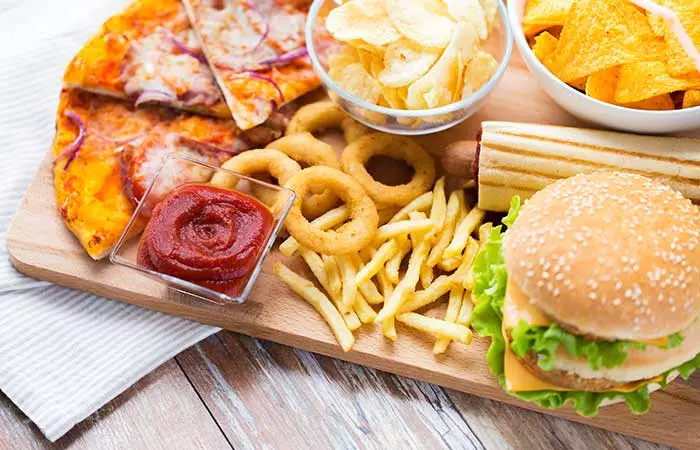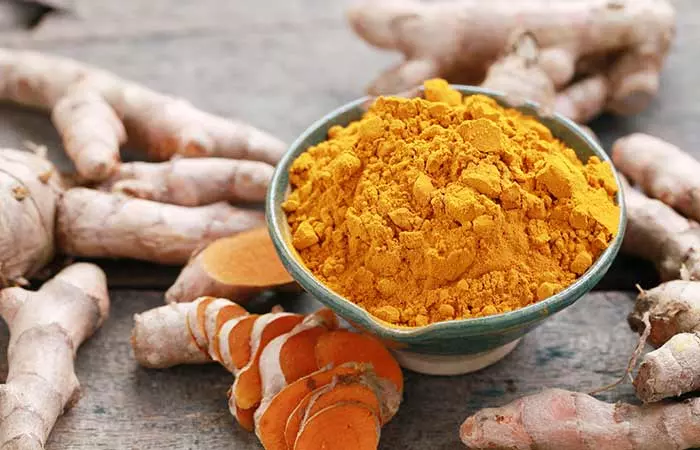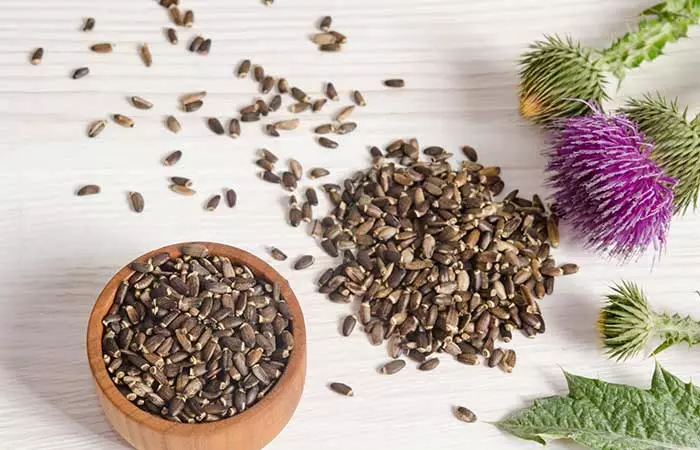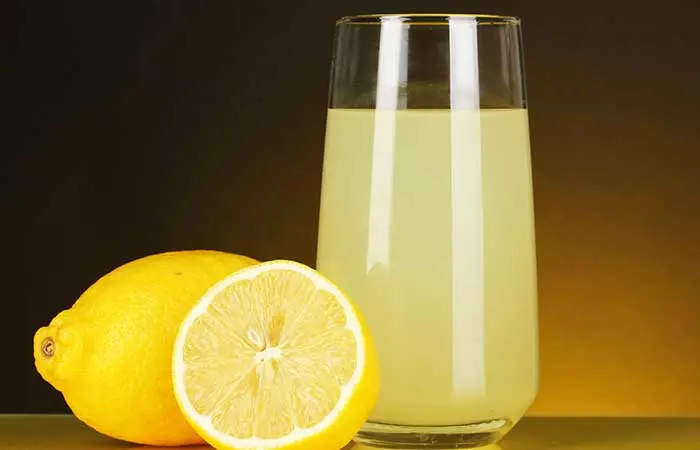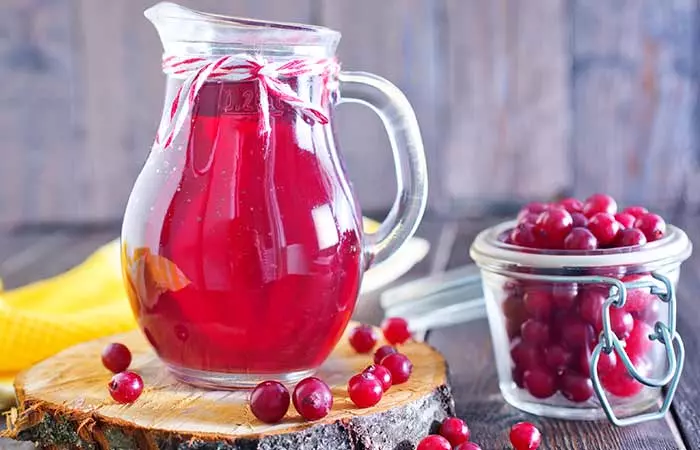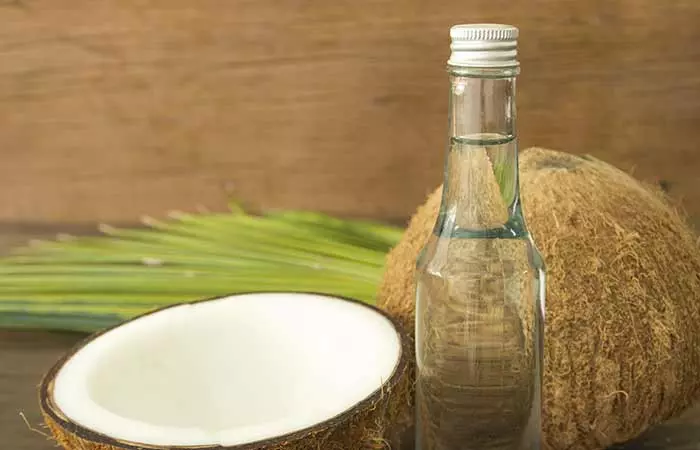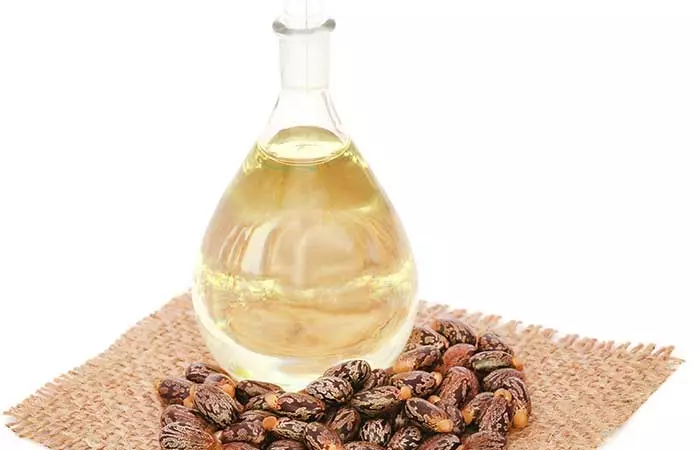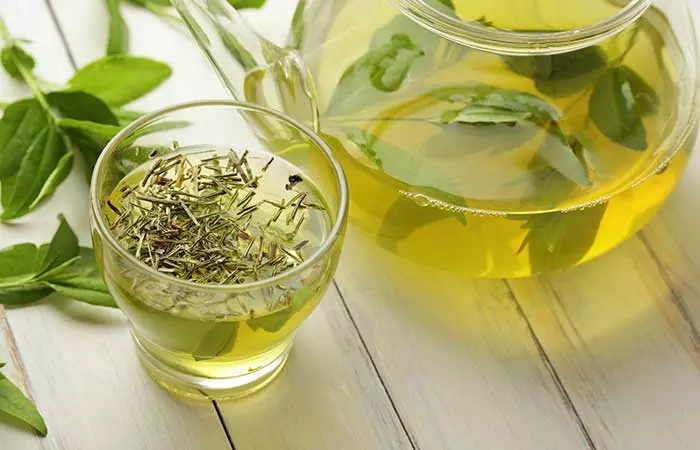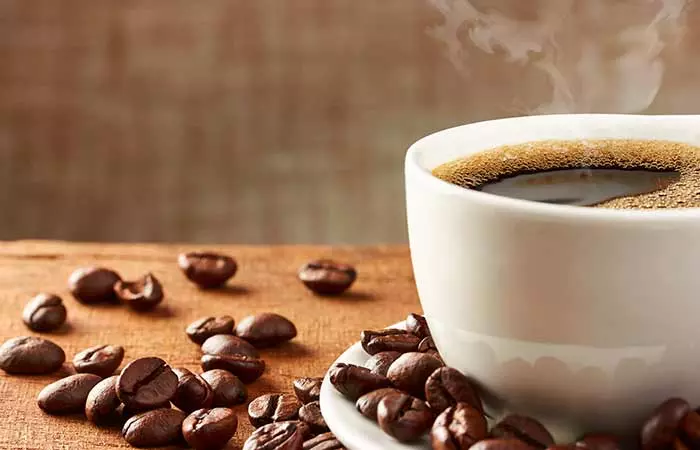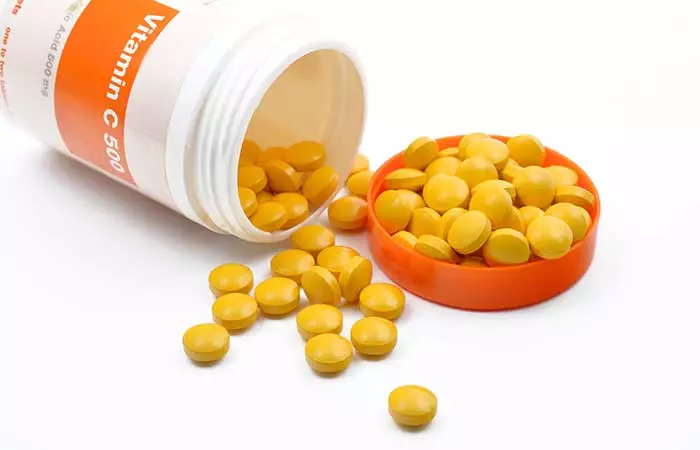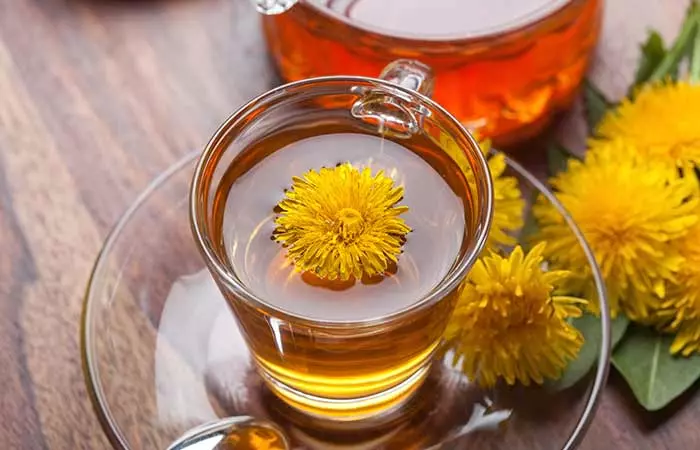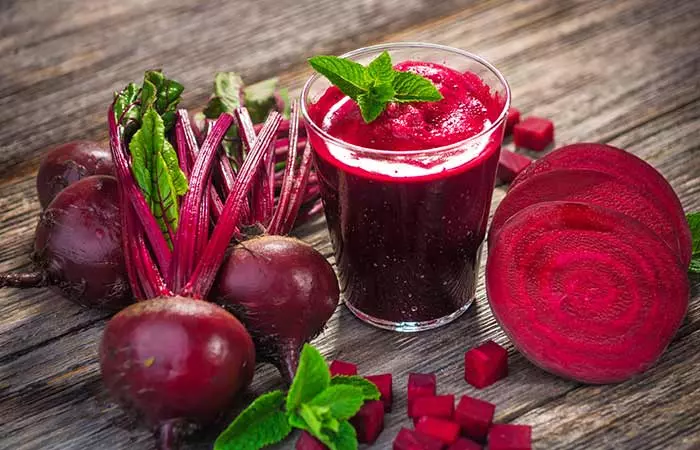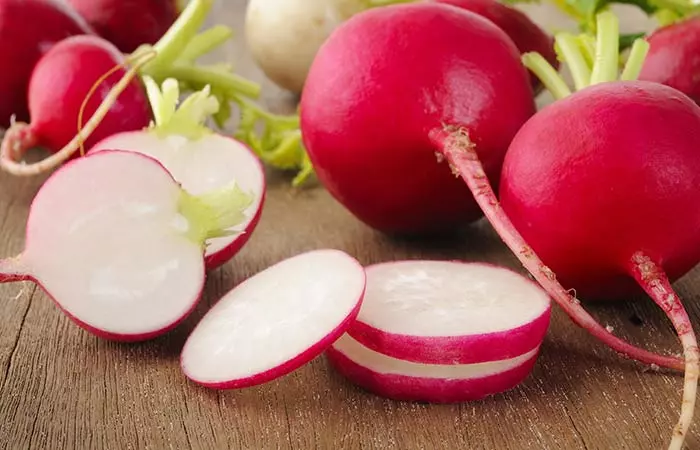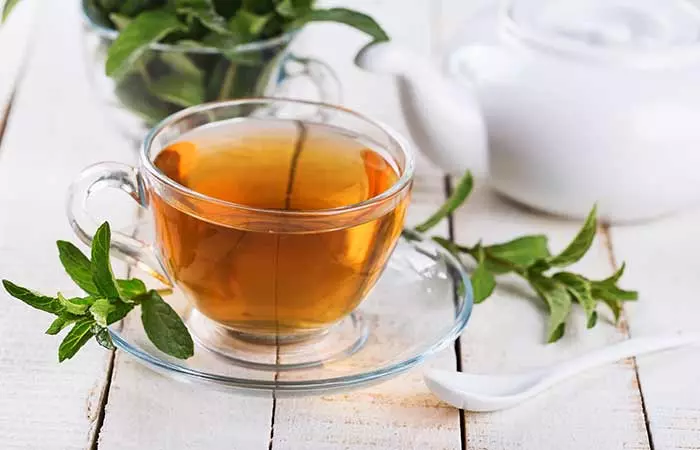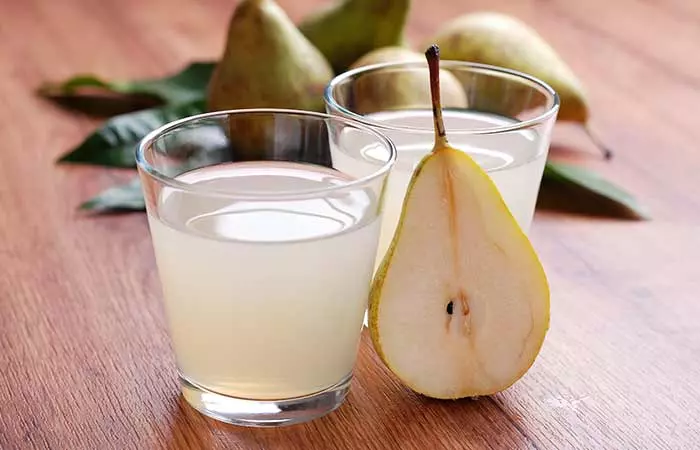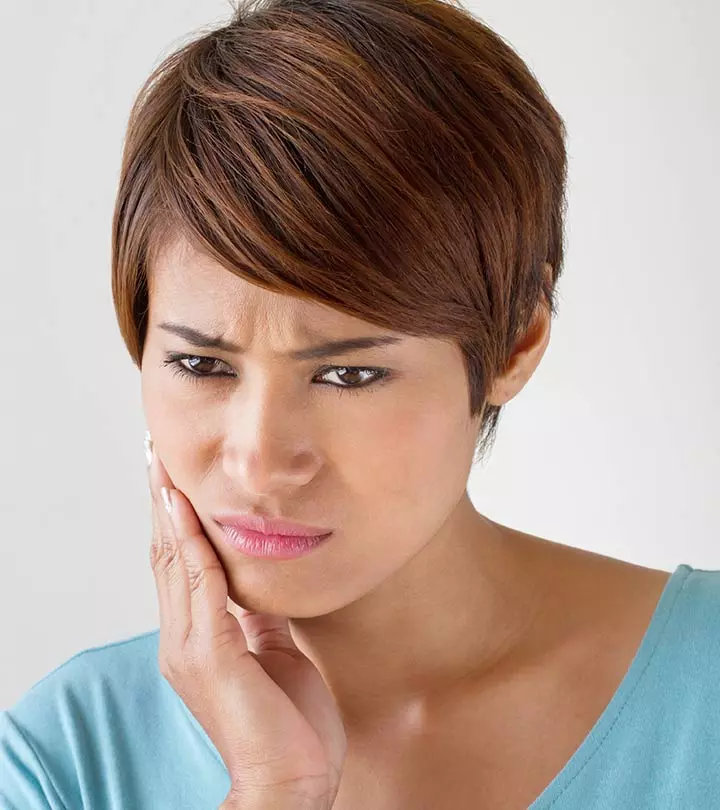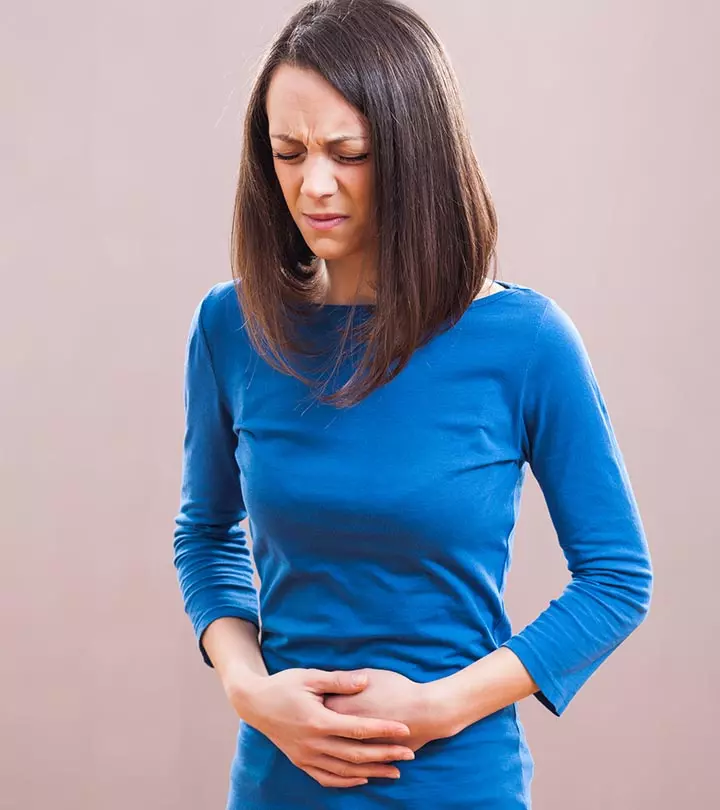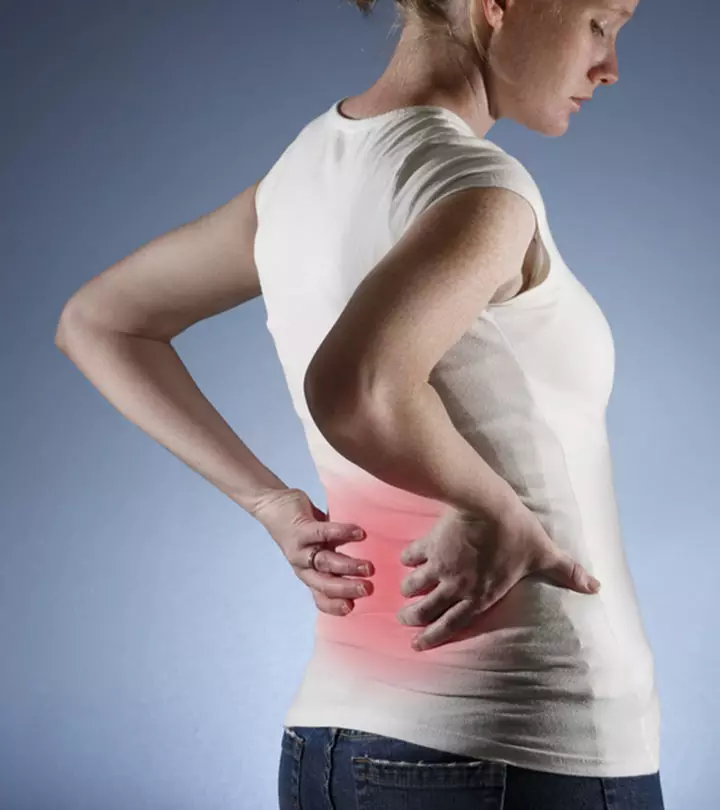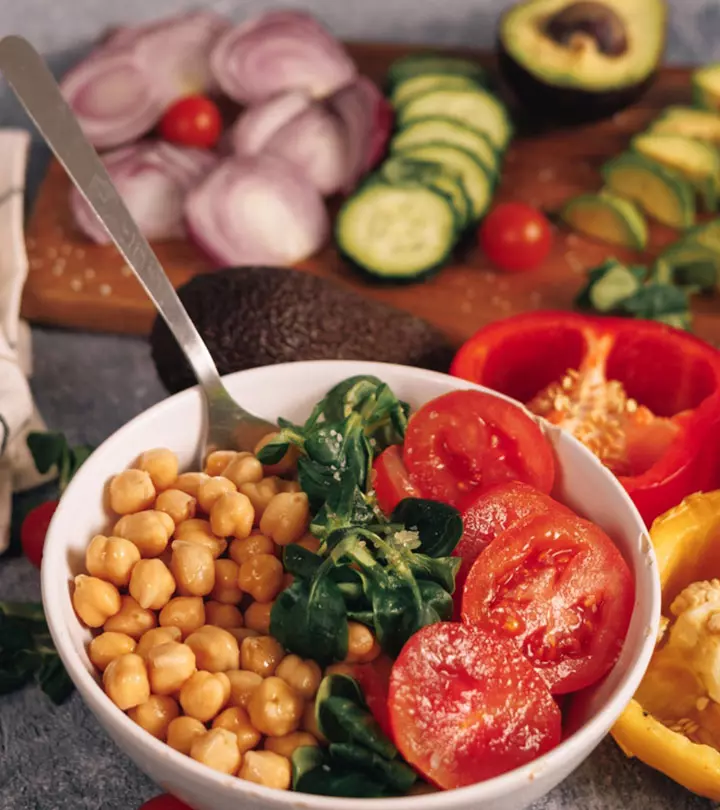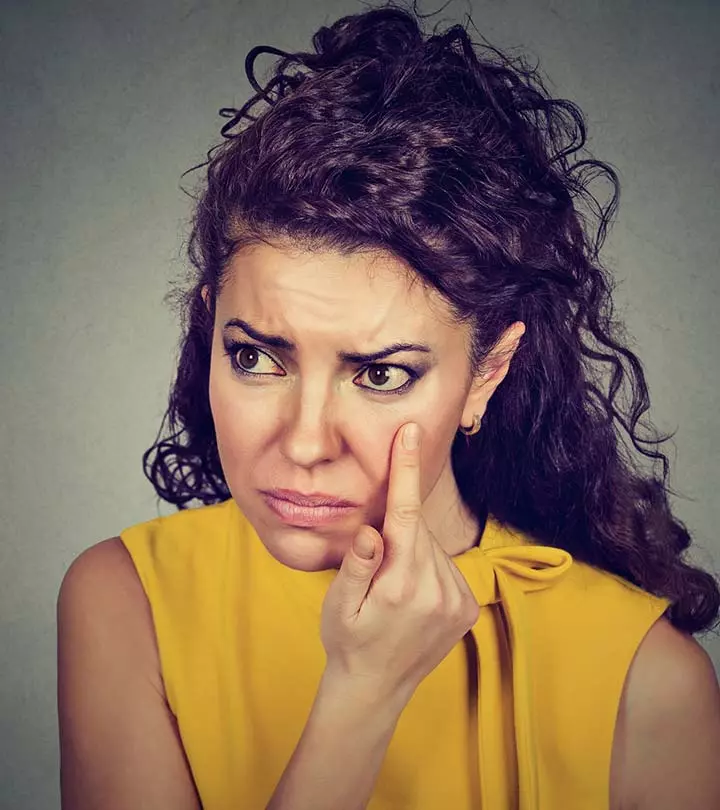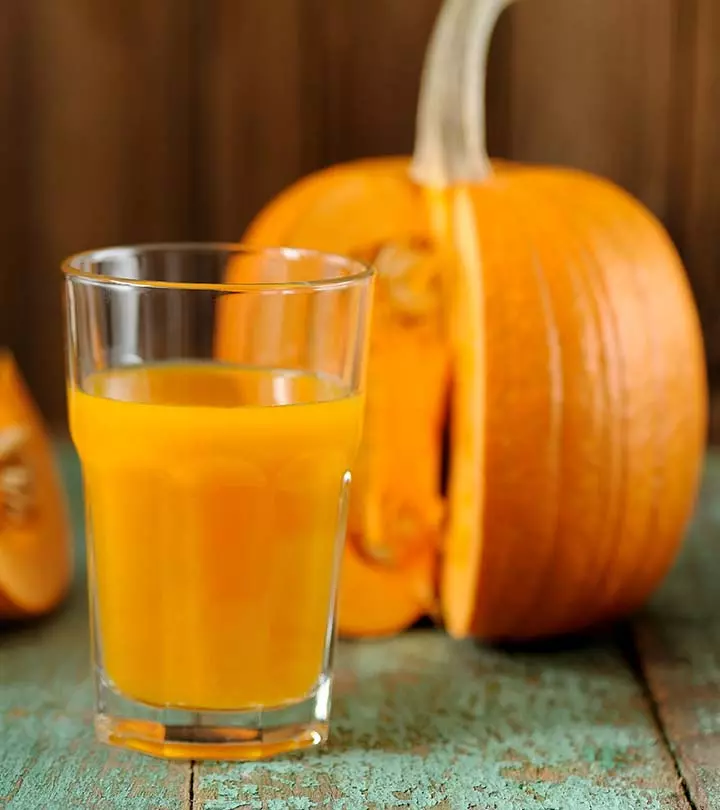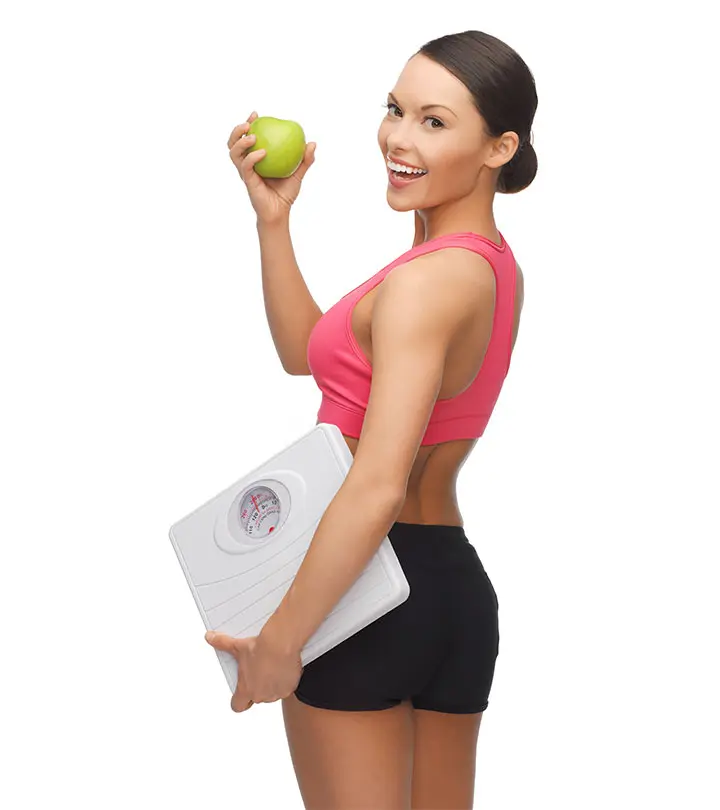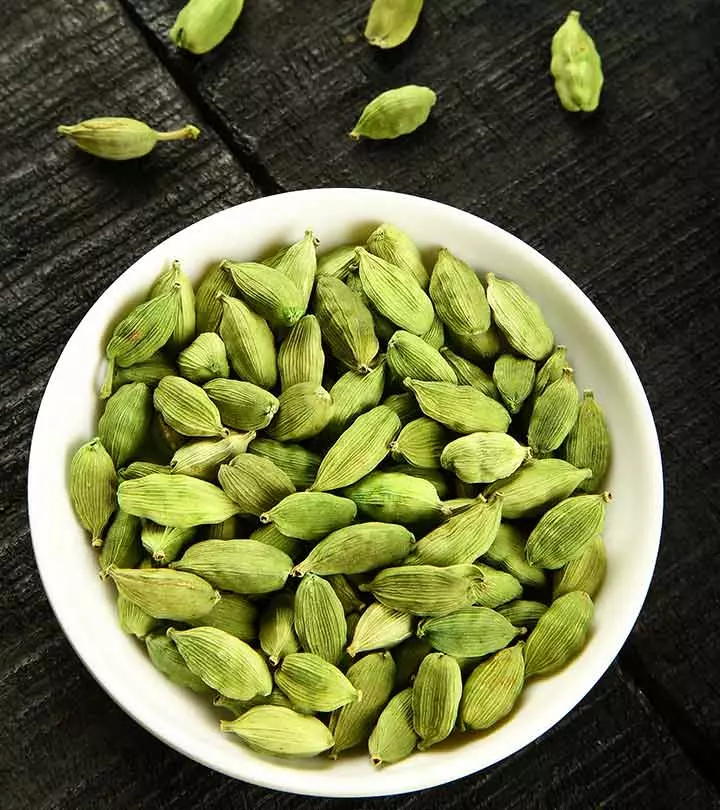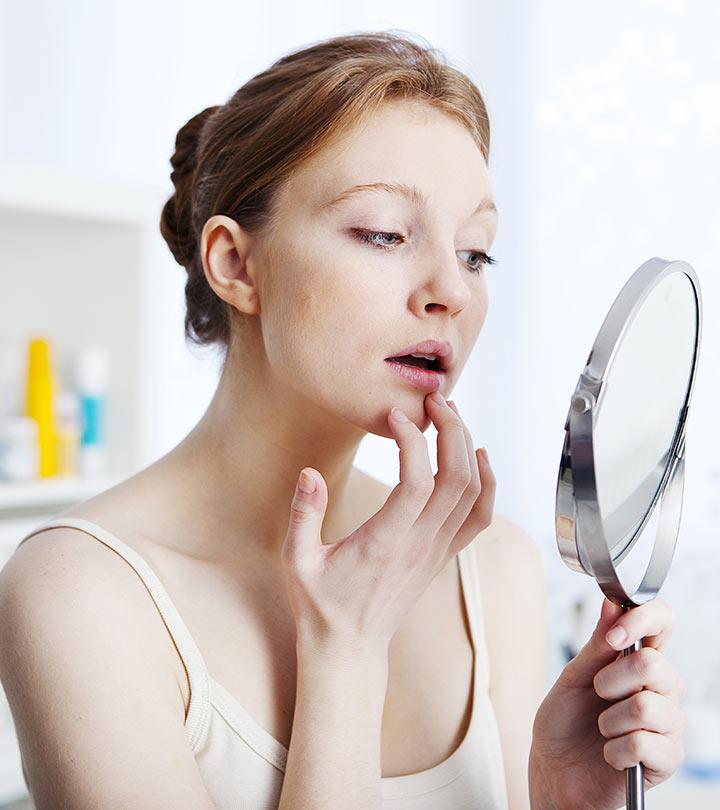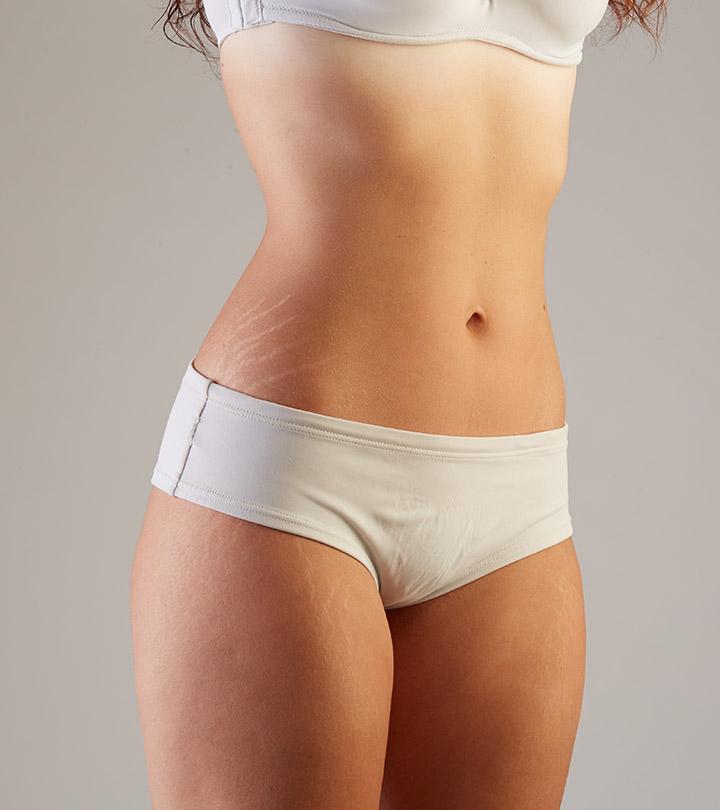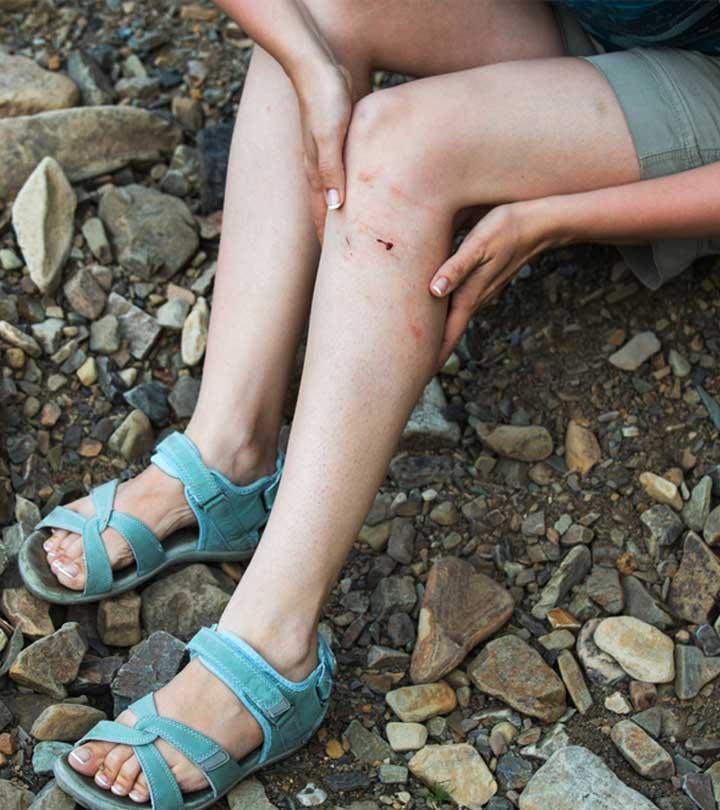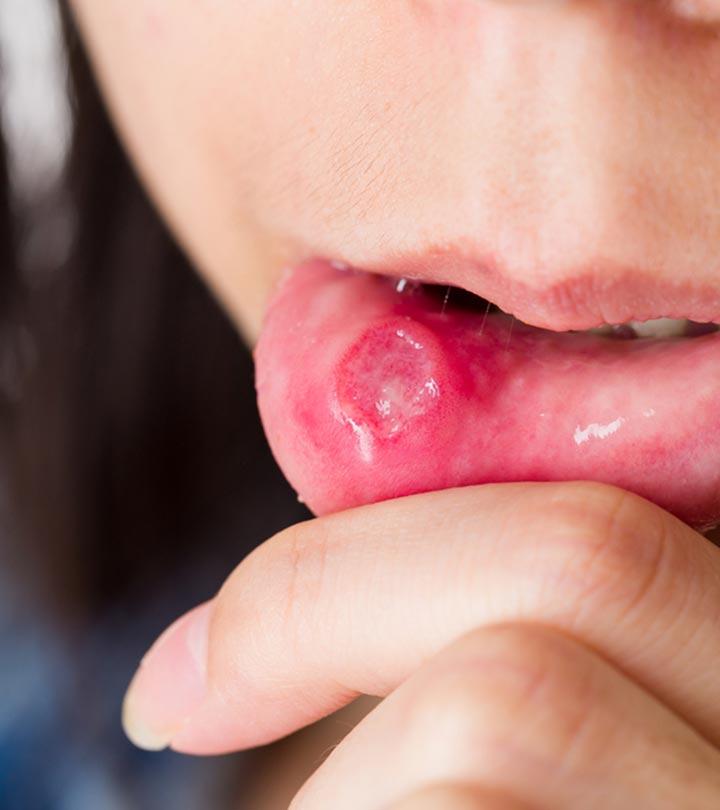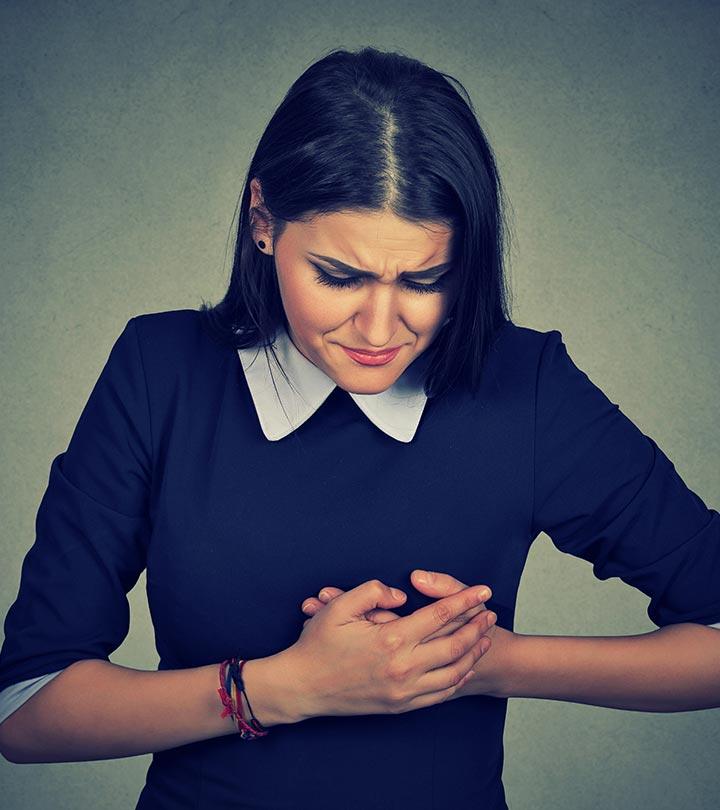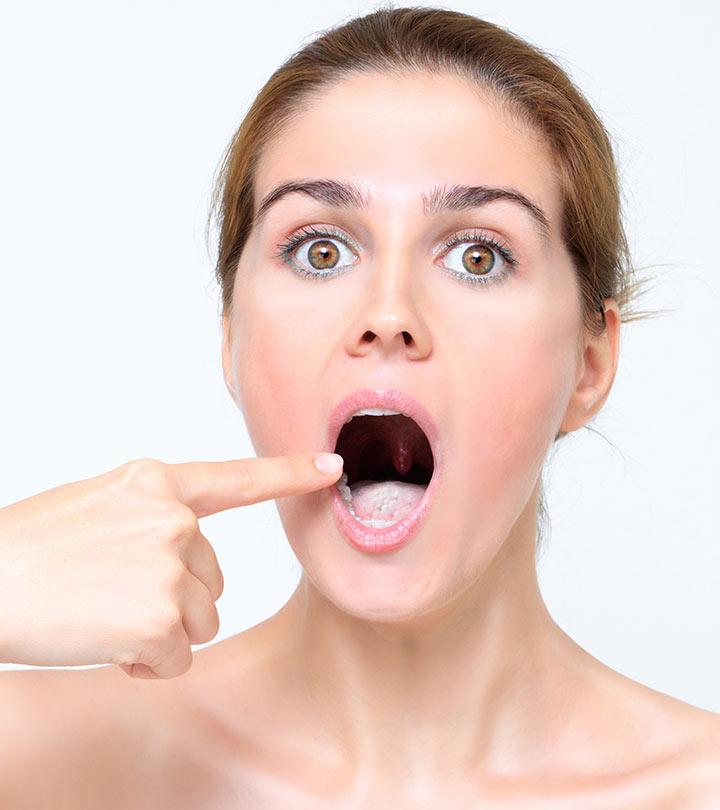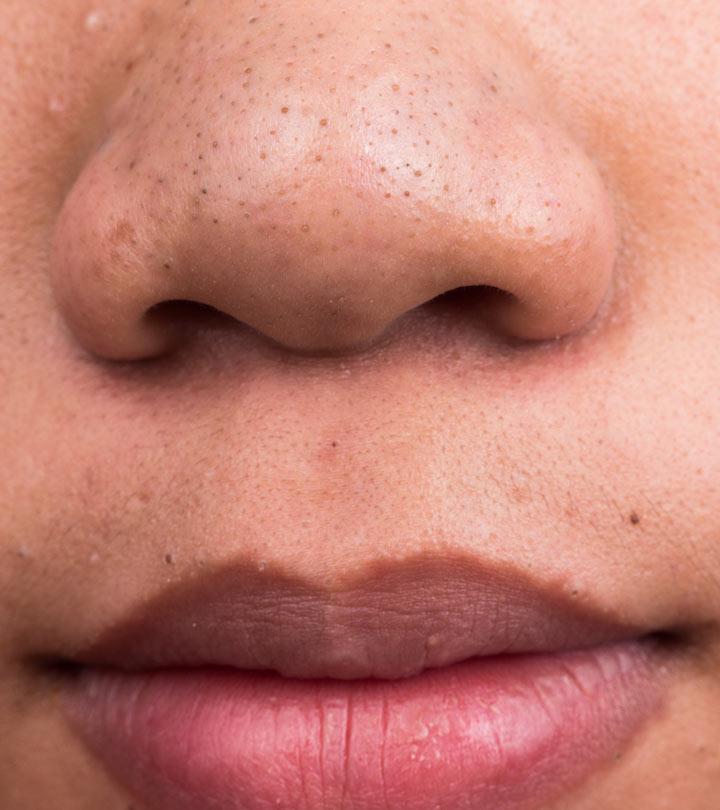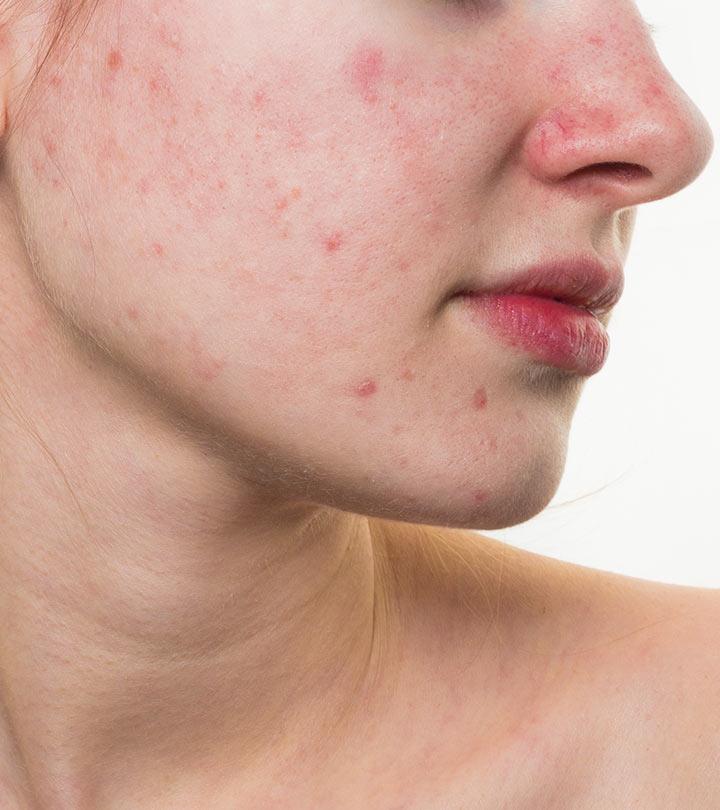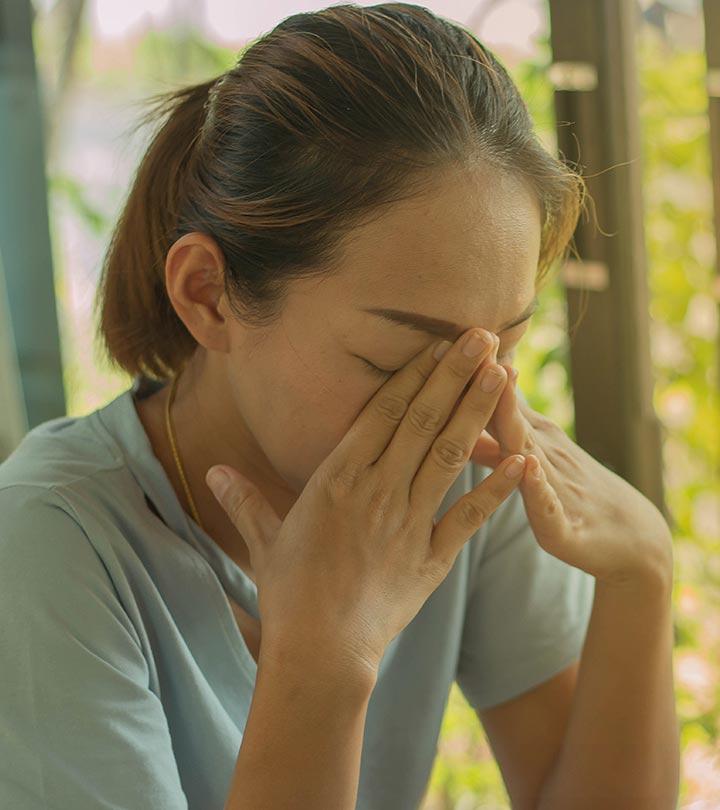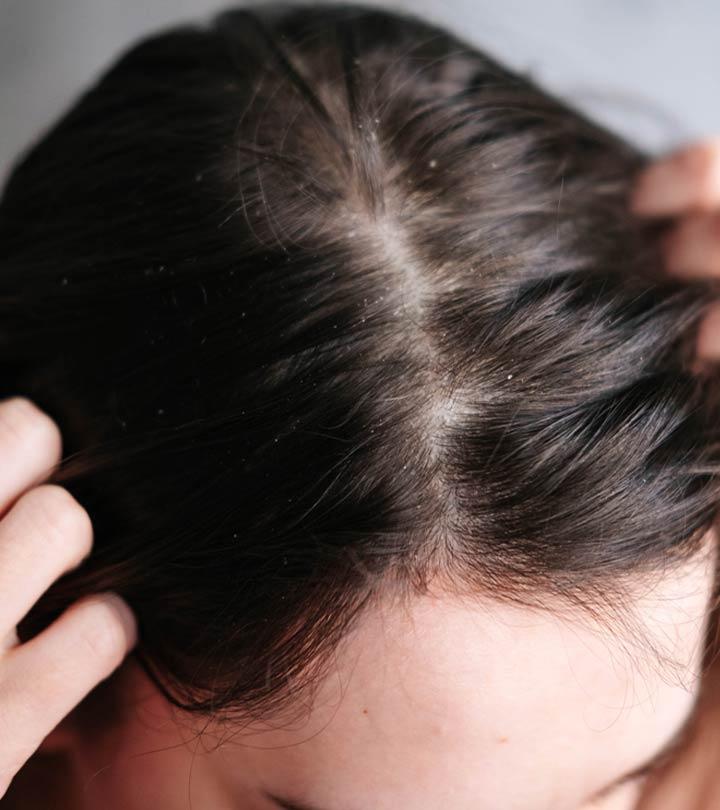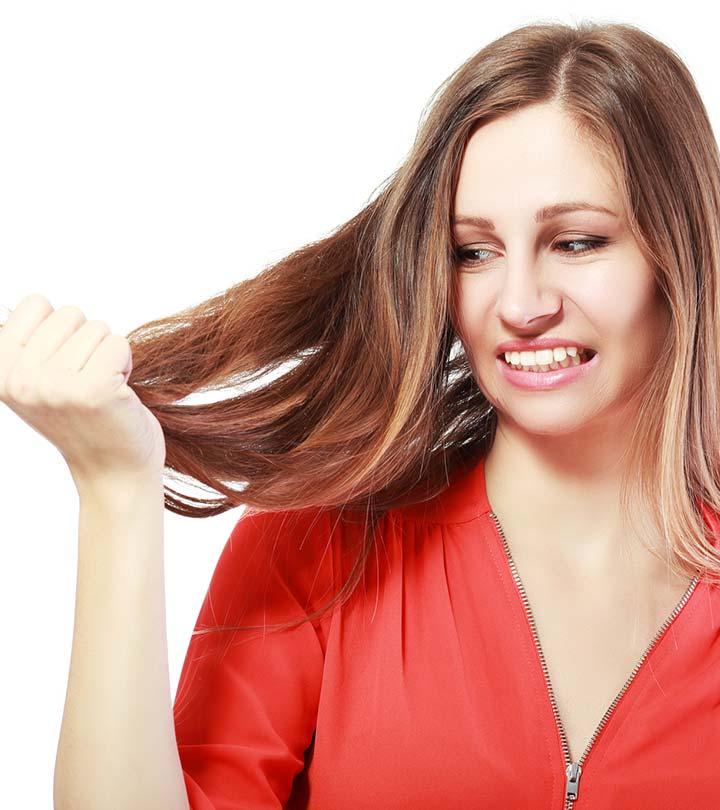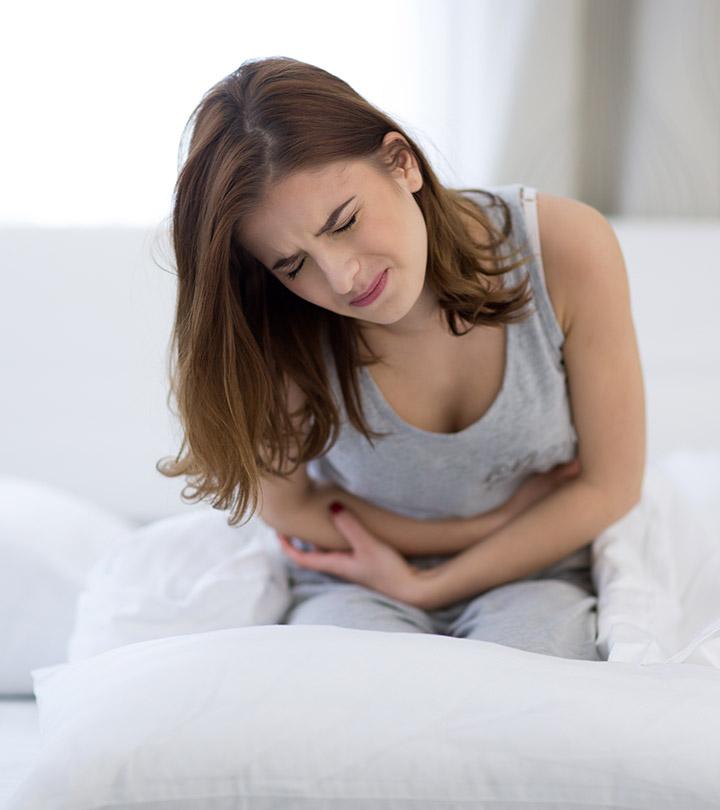15 Natural Remedies To Get Rid Of Gallstones And Foods To Eat
Treat hardened bile deposits in the gall bladder with at-home cures and a mindful diet.
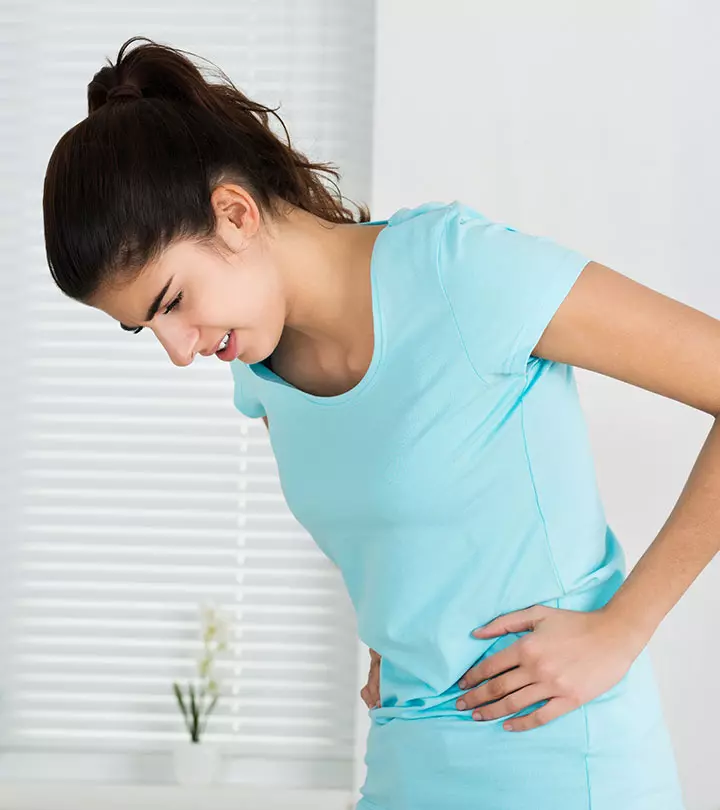
Image: shutter stock
The hard deposits that are formed due to excess bile salts in the gallbladder are called gallstones. Many people look for ways to flush out gallstones at home before going to a doctor.
The majority of us believe that a significant health condition has symptoms that can be easily diagnosed. But that’s not the case! While some significant illnesses show signs that anybody can recognize, some disorders and syndromes are considered to be extremely difficult to detect. Gallbladder disease is one such condition that affects a large number of people, particularly the elderly and women. Gallstones in the gallbladder are undiscovered until they cause severe pain.
Let’s take a look at what gallstones are and how they are caused before we get into the home remedies that can help you get rid of them. Keep reading!
In This Article
What Are Gallstones?
Gallstones are hard, crystalline balls that are formed in the gallbladder from excess cholesterol or bile salts. These stones can vary greatly in size – from being the size of a grain to as large as a tennis ball.
What Causes Gallstones?
Gallstones are excruciatingly painful as the stones might get pushed into the tube. This happens when there is an excessive amount of cholesterol, and there is not enough bile secreted to saturate the cholesterol, which forms a crystal ball.
However, stones can also be formed by bile salts too. In women, pregnancy-related hormonal changes and factors like rapid weight loss and obesity pave the way for gallstone formation. Besides, people relying on junk and fast foods are also prone to stones in the gallbladder. These gallstones go through the bile duct and may cause blockage in the duct, which sends bile to the small intestine from the liver. When this occurs, the gallbladder gets choked and the built up pressure triggers pain in the abdomen region (1).
A study was conducted to investigate the occurrence of gallstone disease in the United States. It was found to be amongst the top 10 most common digestive disorders with 1.5 million emergency department visits and the 5th most common digestive disease diagnosis with 741,000 admissions in 2018.
 Did You Know?
Did You Know?Symptoms Of Gallstones
Some common symptoms of gallstones include the following (3):
1. Pain: Sudden and intense pain in the upper right abdomen often radiating to the back or shoulder blades, especially after a fatty meal.
2. Nausea And Vomiting: Feeling nauseous and vomiting, particularly after eating greasy or fatty foods.
3. Jaundice: Yellowing of the skin and the sclera (white of the eye) due to blocked bile ducts by gallstones.
4. Fever And Chills: Gallstones can cause fever and chills due to inflammation or infection.
5. Indigestion: Persistent bloating and flatulence, especially after eating fatty foods.
6. Changes In Stool Color: Pale-colored stools and dark urine due to decreased bile flow.
7. Intolerance To Fatty Foods: Inability to digest fatty foods without feeling unwell.
It is important to address these symptoms by seeking medical attention. But you can also naturally get rid of gallstones. Check out the next section.
How To Get Rid Of Gallstones Naturally
Dr. Peter Michael, MD, says, “It is possible for a gallstone to pass out of the gallbladder on its own. If it is small enough, it may exit the gallbladder through the bile duct into the intestines. However, the gallstone can be stuck in the bile duct, which can cause pain, obstructions, and possibly infections which is an emergency case. Always contact your physician if you experience these systems in order to get proper treatment.”
While surgery for getting rid of gallstones is quite commonplace, it is better if you take precautions to prevent their formation in the first place. Gallbladder surgery, also called cholecystectomy, can cause years of discomfort, including nausea, diarrhea, and even jaundice. It can increase chances of contracting bowel cancer as well. Besides, the level of cholesterol in blood also shoots up post surgery. Let’s take a look at a few home remedies to get rid of gallstones.
Home Remedies To Prevent The Formation Of Gallstones
- Foods To Avoid
- Turmeric
- Milk Thistle
- Lemon Juice
- Cranberry Juice
- Coconut Oil
- Castor Oil
- Herbal Tea
- Coffee
- Vitamin C
- Dandelion
- Beetroot
- Radish
- Peppermint
- Pear Juice
1. Foods To Avoid For Gallstones
While trying the home remedies for gallstones mentioned in this article, do remember that there are things you need to avoid to prevent gallstone formation. As a rule of thumb, doctors advise people to avoid eating any refined food to prevent stone development in the gallbladder. And those sweet delicacies you polish off during tea time? Well, those sugary snacks are to be avoided above all. Same goes for all fast foods made with artificial sweeteners and all white flour products.
 Did You Know?
Did You Know?2. Turmeric For Gallstones
You Will Need
• 1/2 teaspoon turmeric
• 1/2 teaspoon honey
What You Have To Do
Eat turmeric mixed with honey every day to stay fit and healthy and keep gallstones at bay.
How Often Should You Do This
Do this every day for a healthy gallbladder.
Why This Works
Turmeric is used in cooking many dishes. It is known for its anti-inflammatory and antioxidant properties. Having turmeric in foods can help enhance the solubility of bile. This will ensure that stones are not formed easily (4).
3. Milk Thistle For Gallstones
You Will Need
• 1 tablespoon milk thistle seeds
• 3 cups water
• Honey
What You Have To Do
1. Crush the milk thistle seeds and bring them to a boil.
2. Let the herb steep in hot water for 20 minutes.
3. Strain the herbal tea, add a dash of honey and drink it.
How Often Should You Do This
Drink two to three cups in a day.
Why This Works
A herb with its origin in the Mediterranean region, milk thistle has been used as a natural remedy for liver cleansing as well as gallstone prevention for a long time. Its active component, silymarin, shrinks the gallstones and can also help relieve any pain (5). It is also possible to add the herb in the powdered form to juices and milk. You can also add the powder to your salad and snacks if you don’t like the taste of the juice.
4. Lemon Juice For Gallstones
You Will Need
• 1 teaspoon lemon juice
• A glass of lukewarm water
What You Have To Do
Add the lemon juice to the water and drink this first thing in the morning. Drink more glasses of lemon water throughout the day.
How Often Should You Do This
Drink up to four glasses of lemon water in a day.
Why This Works
Lemon juice is a rich source of vitamin C (6). Vitamin C supplements have been observed to offer protection against the formation of gallstones (7). Hence, drinking lemon juice daily may also help serve the same purpose.
5. Cranberry Juice For Gallstones
You Will Need
Cranberry juice
What You Have To Do
Drink a glass of cranberry juice every day. Dilute it with some water if you feel the juice is too acidic to consume.
How Often Should You Do This
Drink this juice every day to maintain healthy functioning of the body.
Why This Works
This is a preventive remedy for gallstones and gallbladder problems. The dietary fiber present in cranberry juice lowers the cholesterol levels in the body, thus preventing the formation of cholesterol gallstones (8). For gallstones generating from accumulated bile salts, the acidity of the juice will ensure that enough bile flows through the system to prevent this accumulation. The antioxidants present will keep your gallbladder and liver in optimum health (9).
6. Coconut Oil For Gallstones
You Will Need
- 3 tablespoons coconut oil
- 1/4 glass apple juice
- Juice of half a lemon
- A garlic clove (optional)
- A small piece of ginger
What You Have To Do
- Lightly warm up the coconut oil, add all the ingredients to it and blend nicely.
- Drink this mixture once every day.
How Often Should You Do This
Drink this every day for several weeks.
Why This Works
If you are prone to gallbladder attacks, this remedy is perfect for you. Coconut oil contains essential fats that can be easily digested by the liver. The accumulation of unhealthy fats, cholesterol, and bile salts in the gallbladder can be prevented (10).
7. Castor Oil For Gallstones
You Will Need
- 1 cup castor oil
- Cheesecloth
- Plastic wrap/sheet
- A hot compress
What You Have To Do
- Heat the castor oil lightly and soak the cheesecloth in it.
- Remove excess oil from the cloth and place it on the right side of the belly, where your gallbladder and liver are located.
- Hold the cloth in place by wrapping a plastic sheet around the belly.
- Place the hot compress over this for about 30 to 40 minutes.
How Often Should You Do This
Repeat this process thrice a week.
Why This Works
Castor oil possesses anti-inflammatory and healing properties, which will reduce swelling in the area and also the pain you are experiencing (11), (12).
8. Herbal Tea For Gallstones (Green Tea For Gallstones)
You Will Need
- 2 teaspoons green tea leaves
- 1 cup hot water
- Honey
- Lemon
What You Have To Do
- Steep the tea leaves in water for five to 10 minutes.
- Strain and add a bit of honey and lemon for taste.
- Drink the tea while it is warm.
How Often Should You Do This
Drink two to three cups of green tea in a day.
Why This Works
Green tea contains antioxidants that give your body energy and reduce inflammations. They may also be able to prevent gallstones, though further studies are warranted in that regard (13).
9. Coffee For Gallstones
You Will Need
A cup of hot coffee
What You Have To Do
Brew a cup of your favorite hot coffee and drink it.
How Often Should You Do This
Drink a cup of two every day to prevent gallstones.
Why This Works
Research has revealed that drinking a cup of coffee a day can help ease gallbladder problems. It helps to prevent gallstones. Caffeine also stimulates gallbladder contractions and makes the passage of gallstones easy (14).
10. Vitamin C For Gallstones
Vitamin C is not only good for your immunity and skin, but is also effective in preventing gallbladder stone formation. When your body gets an adequate dose of vitamin C, it increases the breakdown of cholesterol to bile acids. As a result, the risk of stone formation in the gallbladder will be less (15).
You can take vitamin C in many forms. If taking vitamin pills is not your cup of tea, eat fruits and vegetables like guava, kiwi, papaya, mango – all of which are full of this important nutrient.
11. Dandelion For Gallstones
You Will Need
- 1 tablespoon dried dandelion root
- 1/2 teaspoon honey
- A cup of hot water
- A pot
What You Have To Do
- Crumble the dandelion root and place it in the pot. Then, pour some hot water on it.
- Let it steep for a few minutes and then add honey to it.
- Strain and drink this herbal tea.
How Often Should You Do This
You may have this herbal tea mixture twice a day for optimal results.
Why This Works
Dandelion is another useful natural remedy for gallbladder stones. Dandelion leaves help in bile excretion and fat metabolization. Taking the herb can also help in stimulating the gallbladder (16).
Caution
People who have diabetes should ideally talk to a medical practitioner before trying out this herb-infused tea.
12. Beetroot For Gallstones
You Will Need
- Beetroot
- Water
What You Have To Do
- Cut the beetroot into small pieces and blend with some water to make fresh beetroot juice.
- Drink a cup of beetroot juice every day.
How Often Should You Do This
Drink a cup every day to relieve gallstone pain.
Why This Works
High in fiber, carotenoids, and flavonoids, beetroot juice is known to lower blood cholesterol. Hence, cholesterol gallstones cannot form. It may also improve liver function (17), (18).
13. Radish For Gallstones
You Will Need
- A radish
- Water
What You Have To Do
- Peel the radish and cut it into small pieces.
- Blend these with a little water to make fresh radish juice.
- Have two tablespoons of this juice.
How Often Should You Do This
Drink up to five to six tablespoons throughout the day for larger gallstones. A tablespoon or two a day is enough for smaller stones.
Why This Works
Though this is not a favorite vegetable for many, it is another good home remedy for gallstones. Radish, especially black radish, can help in the treatment of cholesterol gallstones (19). However, you should eat radish in moderation. Do not intake more than the recommended quantity in a day.
14. Peppermint For Gallstones
You Will Need
- A few mint leaves (fresh or dried)
- A cup of warm water
- 1/2 teaspoon honey
What You Have To Do
- Add the leaves to boiled water. Cover the cup and let it steep for a few minutes.
- Strain the water and add honey to it before sipping.
How Often Should You Do This
It is advisable to have a cup of this tea between meals.
Why This Works
Peppermint helps in digestion by stimulating the flow of bile and other digestive tract juices. It also contains a natural compound called terpene that can dilute gallstones. Regular intake of a cup of peppermint-infused tea can also help cure all gallbladder problems while also relieving pain from acute attacks (20).
15. Pear Juice For Gallstones
You Will Need
- 1/2 glass pear juice
- 1/2 glass hot water
- 2 tablespoons honey
What You Have To Do
- To the hot water, firstly add pear juice and then the honey. Mix well.
- Drink this juice while it is warm.
How Often Should You Do This
Drink this thrice a day.
Why This Works
The blend of honey and pear juice can be very effective for avoiding gallstone development. Pear is a pectin-containing fruit. This pectin binds to cholesterol and eliminates it from the body (21)
Lynne, a blogger, shared how she treated gallstones naturally. She writes, “For the first five days, take four glasses of natural apple juice or eat four or five apples instead. Apple softens Gallstones. Eat normally during the day. On the sixth day, do not eat dinner. At 6 pm, take a teaspoon of Epsom salt (magnesium sulfate) with a glass of warm water. Repeat the procedure at 8 pm. The Epsom salt will open the gallbladder ducts. At 10 pm, take half a cup of olive oil with fresh lemon juice and drink it (i).”
Apart from the above-mentioned remedies, engaging in exercise or yoga may also help lower the risk of developing gallstones. It is far more prudent that you prepare your body to prevent gallstone formation. For this, there is no need to become a medical expert. You can resort to the proven home-based and natural remedies that we have listed above and keep them at bay.
Infographic: 6 Things To Do To Remedy Or Prevent Gallbladder Stones
Excess buildup of bile salts in the gallbladder can lead to the formation of stones, which manifests as a painful health condition. However, certain home remedies may help ease the condition. Check out the following infographic to learn about the simple things you can do to reduce the risk of gallbladder stones. Illustration: StyleCraze Design Team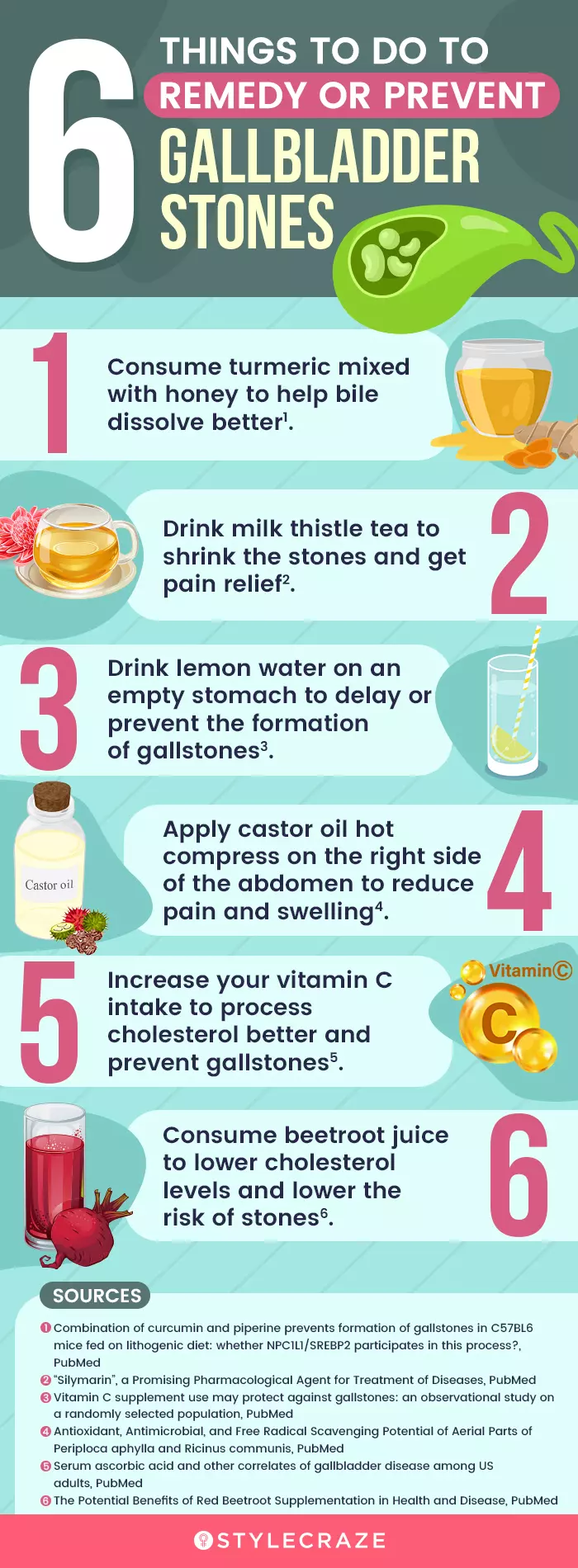
Excess bile salts or cholesterol may lead to the formation of hard crystalline stones in the gallbladder called gallstones. Gallstones can be very painful and lead to severe health complications, including bowel cancer. Surgical procedures to remove gallstones are commonplace but carry risks of complications. To get rid of gallstones naturally, you may use certain home remedies milk thistle, turmeric, lemon juice, herbal teas, coconut oil, pear juice, dandelion, and coffee. In addition, you may benefit from removing foods that are high in cholesterol, processed flour, and added sugars from your diet to prevent the worsening of your condition.
Frequently Asked Questions
Can drinking water remove gallstones?
Dr. Michael says, “No, drinking water alone cannot remove gallstones, but staying well-hydrated is important for overall health and can help prevent the formation of new gallstones.” Drinking at least 6 to 8 glasses of water each day may help prevent the formation of gallstones. However, there is no evidence to suggest that drinking water can remove gallstones that have already formed in the gallbladder.
Gallbladder Disease Signs & Symptoms
When the gallstones travel into any of the ducts attached to the gallbladder, it can result in a gallbladder attack. Symptoms of this are as follows:
- Pain in the upper abdomen or upper-right abdomen, which is constant and can also increase and lasts from an hour to several hours
- Pain under the right shoulder and in between the shoulder blades
- Vomiting
- Nausea
- Bloating
- Flatulence and belching
- Indigestion (1)
Where Do You Get Gallbladder Pain?
Gallbladder pain is experienced in the upper or upper-right part of the abdomen.
What Does The Gallbladder Do?
The gallbladder forms an important part of our digestion process. It is a little pear-shaped pouch located behind the liver. It is responsible for storing the cholesterol-rich bile secreted by the liver, which helps to cut down fatty foods.
What To Eat With Gallstones?
To stay healthy and avoid gallstone formation, you need to follow the right kind of diet (22).
- Ensure that you eat foods that are low in cholesterol and fat and high in fiber. Fiber-enriched foods keep the digestive system in good shape, and a low-fat diet prevents cholesterol development in the gallbladder.
- For cooking foods and snacks, you can replace cooking oil with olive oil as far as possible. It contains higher amounts of monounsaturated fat and is healthier for the stomach, liver, and gallbladder. You may also use canola oil for the same reason.
- To reduce intake of saturated fat from foods, eat low-fat dairy products and lean meat portions.
- To ensure gallstones do not form in your body, make sure your platter remains full of vegetables. Studies have shown that vegetarians are less prone to gallstones when compared to hardcore non-vegetarians. Vegetables are responsible for reducing the cholesterol in the bile, thus curing gallstones. Having a bowl of salad rich in green vegetables can help cure gallbladder problems. You can try various other types of
- A single red bell pepper has 95mg of vitamin C, the essential vitamin required to get rid of gallstones. Adding red bell pepper to your meal will help you get the essential nutrients to avoid bladder problems.
Follow the tips mentioned above and make changes in your diet accordingly.
How To Relieve Back Pain After Gallbladder Surgery?
Having back pain after gallbladder surgery is common. This pain should slowly start fading away as days go by. You can use a simple warm compress to ease this pain. If the pain does not subside even after a few weeks and is causing discomfort, please consult your doctor as this might indicate post-operational complications.
Can Gallstones Damage The Liver?
When the gallstones are lodged in the bile ducts, the flow of bile from the liver to the gallbladder is obstructed. As a result, excess bile starts accumulating in the liver and damaging the liver cells. This can lead to cirrhosis, a condition that involves deterioration and malfunctioning of the liver (1).
How Do You Test For Gallbladder Problems?
There are various diagnostic tests that the doctor can advise you to get done for gallbladder problems. These tests will generate reports that present a clear image of the gallbladder and associated organs. Below listed are the common tests that are conducted (23).
- Abdominal ultrasound – can easily detect small gallstones
- Abdominal X-ray – good for detecting gallstones containing calcium deposits
- Abdominal CT scan – to detect ruptures and infection that are caused due the stones
- MRI scan – to detect stones lodged in the bile ducts
- Endoscopic Retrograde Cholangiopancreatography (ERCP) – good for detecting stones blocking the bile ducts and also removing them while performing the test
- Cholescintigraphy or gallbladder radionuclide scan – radioactive dye used to detect blocked ducts and inflammation
Now that you know how to get rid of gallstones naturally, what are you waiting for? It is always advisable to check with a doctor if you are suffering from any gallbladder problem. There are medications available to cure it. There are also non-surgical processes to dissolve the stone. The final option is surgery if the condition is beyond the reach of medication. You can ask a medical professional whether you should proceed with a nonsurgical alternative like lithotripsy or if you need surgery. Laparoscopic surgery is done when the gallstones start causing too much inflammation, pain, and infection. For acute gallbladder problems, the only cure is surgery.
They say prevention is better than cure. And, we agree! Who would want to live through the agony of gallstones only to be followed by an invasive surgery? Do your gallbladder a favor and start following these tips.
Do you suffer from any gallbladder problems? What do you usually do to get relief? Share your experiences with us in the comments section below.
Can drinking water remove gallstones?
Drinking at least 6 to 8 glasses of water each day may help prevent the formation of gallstones. However, there is no evidence to suggest that drinking water can remove gallstones that have already formed in the gallbladder.
Can apple cider vinegar help with gallbladder stones?
Anecdotal evidence suggests that drinking apple cider vinegar can help dissolve gallstones due to its acidity. However, there is a lack of scientific evidence regarding this matter. Also, remember to dilute ACV with water before drinking it if you want to try this remedy.
Is ginger good for gallstones?
There is no conclusive evidence to suggest that ginger can help get rid of gallstones.
Key Takeaways
- Turmeric, castor oil, and herbal tea contain antioxidants that increase the solubility of the bile.
- Lemon juice, cranberry juice, pear juice, beetroot juice, and dandelion contain vitamin C and dietary fiber, which help in lowering cholesterol while generating bile flow and increasing metabolism.
- Coconut oil, radish, peppermint, and coffee help in accumulating unhealthy fats and stimulate contraction to pass bile easily.
- Avoid refined food to prevent food deposits and unhealthy bile formation.
Discover a natural approach to dissolving gallstones in this informative video. Explore effective methods and learn how to incorporate them into your routine for potential relief by clicking on the video below.
Personal Experience: Source
StyleCraze's articles are interwoven with authentic personal narratives that provide depth and resonance to our content. Below are the sources of the personal accounts referenced in this article.
i. Removing Gallstones Naturally: My Personal Experiencehttps://lynnesampilo.wordpress.com/2011/01/04/removing-gallstones-naturally-my-personal-experience/
References
Articles on StyleCraze are backed by verified information from peer-reviewed and academic research papers, reputed organizations, research institutions, and medical associations to ensure accuracy and relevance. Read our editorial policy to learn more.
- Gallstones
https://www.ncbi.nlm.nih.gov/pmc/articles/PMC3899548/ - Cholelithiasis
https://www.ncbi.nlm.nih.gov/books/NBK470440/ - Symptoms & Causes of Gallstones
https://www.niddk.nih.gov/health-information/digestive-diseases/gallstones/symptoms-causes - Combination of curcumin and piperine prevents formation of gallstones in C57BL6 mice fed on lithogenic diet: whether NPC1L1/SREBP2 participates in this process?
https://www.ncbi.nlm.nih.gov/pmc/articles/PMC4557223/ - “Silymarin” a Promising Pharmacological Agent for Treatment of Diseases
https://www.ncbi.nlm.nih.gov/pmc/articles/PMC3586829/ - Vitamin C in Citrus juices
https://www.ncbi.nlm.nih.gov/pmc/articles/PMC1253024/ - Vitamin C supplement use may protect against gallstones: an observational study on a randomly selected population
https://www.ncbi.nlm.nih.gov/pmc/articles/PMC2763865/ - Favourable impact of low-calorie cranberry juice consumption on plasma HDL-cholesterol concentrations in men
https://pubmed.ncbi.nlm.nih.gov/16923231/ - Antioxidant Effects of Cranberry Powder in Lipopolysaccharide Treated Hypercholesterolemic Rats
https://www.ncbi.nlm.nih.gov/pmc/articles/PMC4103731/ - Cocos nucifera (L.) (Arecaceae): A phytochemical and pharmacological review
https://www.ncbi.nlm.nih.gov/pmc/articles/PMC4671521/ - Antioxidant Antimicrobial and Free Radical Scavenging Potential of Aerial Parts of Periploca aphylla and Ricinus communis
https://www.ncbi.nlm.nih.gov/pmc/articles/PMC3418662/ - Using a castor oil-balsam of Peru-trypsin ointment to assist in healing skin graft donor sites
https://pubmed.ncbi.nlm.nih.gov/12874484/ - Beneficial effects of green tea: A literature review
https://www.ncbi.nlm.nih.gov/pmc/articles/PMC2855614/ - More coffee fewer gallstones
https://www.ncbi.nlm.nih.gov/pmc/articles/PMC1174713/ - Serum ascorbic acid and other correlates of gallbladder disease among US adults.
https://www.ncbi.nlm.nih.gov/pmc/articles/PMC1508320/ - Mechanisms Underlying the Prevention and Treatment of Cholelithiasis Using Traditional Chinese Medicine
https://www.ncbi.nlm.nih.gov/pmc/articles/PMC6601506/ - A Whole-Food-Based Health Product (A-F Betafood®) Improves Gallbladder Function in Humans at Risk of Gallbladder Insufficiency: A Randomized Placebo-Controlled Clinical Trial
https://www.ncbi.nlm.nih.gov/pmc/articles/PMC7071478/ - The Potential Benefits of Red Beetroot Supplementation in Health and Disease
https://www.ncbi.nlm.nih.gov/pmc/articles/PMC4425174/ - Antilithiasic and Hypolipidaemic Effects of Raphanus sativus L. var. niger on Mice Fed with a Lithogenic Diet
https://www.ncbi.nlm.nih.gov/pmc/articles/PMC3471002/ - Review article: The physiologic effects and safety of Peppermint Oil and its efficacy in irritable bowel syndrome and other functional disorders
https://www.ncbi.nlm.nih.gov/pmc/articles/PMC5814329/ - Pectin isolated from prickly pear (Opuntia sp.) modifies low density lipoprotein metabolism in cholesterol-fed guinea pigs
https://pubmed.ncbi.nlm.nih.gov/2231018/ - Dietary intake and gallbladder disease: a review
https://pubmed.ncbi.nlm.nih.gov/10447244/ - Gallstone Disease Is Associated with More Severe Liver Damage in Patients with Non-Alcoholic Fatty Liver Disease
https://www.ncbi.nlm.nih.gov/pmc/articles/PMC3405067/
Read full bio of Dr. Millie Lytle
- Dr. Peter Michael is a physician with 18 years of experience. He graduated from the University of Miami Miller School of Medicine and completed his internal medicine residency at Howard University Hospital and his physical medicine and rehabilitation (PM&R) at the University of Miami Miller School of Medicine.
 Dr. Peter Michael is a physician with 18 years of experience. He graduated from the University of Miami Miller School of Medicine and completed his internal medicine residency at Howard University Hospital and his physical medicine and rehabilitation (PM&R) at the University of Miami Miller School of Medicine.
Dr. Peter Michael is a physician with 18 years of experience. He graduated from the University of Miami Miller School of Medicine and completed his internal medicine residency at Howard University Hospital and his physical medicine and rehabilitation (PM&R) at the University of Miami Miller School of Medicine.
Read full bio of Arshiya Syeda
Read full bio of Dipti Sharma





